President Recep Tayyip Erdoğan has called on Russia and Ukraine not to skip negotiations or miss an opportunity for peace ahead of the anticipated meeting between the sides in Istanbul on Monday.
“Türkiye considers the momentum achieved in Istanbul talks a chance for lasting peace between the sides,” Erdoğan said in remarks published Thursday from an interview with journalists.
Citing Russian Foreign Minister Sergei Lavrov’s recent proposal to hold direct negotiations with Ukraine in Istanbul, Erdoğan said Lavrov’s remarks increased Türkiye’s hopes for peace and assured talks would resume in Istanbul.
“We are in contact with Russia and Ukraine. We are telling them not to shut the door as long as it remains open,” he added.
On Thursday, Russia said it was still waiting for Ukraine to say whether it would attend peace talks in Istanbul on Monday, after Kyiv demanded Moscow send its peace terms before agreeing to the meeting.
“During the course of each of our meetings, we have reminded our interlocutors that they should not pass up this opportunity,” Erdoğan said, adding that: “Extinguishing this huge fire in our region … is a humanitarian duty.”
Foreign Minister Hakan Fidan, who met Russian President Vladimir Putin in Moscow on Monday, was expected to travel to Kyiv on Thursday ahead of a meeting with Ukrainian President Volodymyr Zelenskyy.
Diplomatic efforts to end the three-year conflict have gained pace in recent months, but Moscow has shown no signs of easing its bombardment of Ukraine while rebuffing calls for an immediate cease-fire.
Moscow has offered to hold a second round of direct talks with Ukraine in Istanbul on June 2, where it wants to present a so-called “memorandum” outlining its conditions for a long-term peace settlement.
But Ukraine said the meeting would not yield results unless it saw a copy of the memorandum in advance, a proposal that the Kremlin dismissed.
The warring sides previously met in Istanbul on May 16, their first direct talks in over three years.
Those talks failed to yield a breakthrough, but the two sides did agree to trade 1,000 prisoners each – their biggest POW swap since the beginning of the conflict.
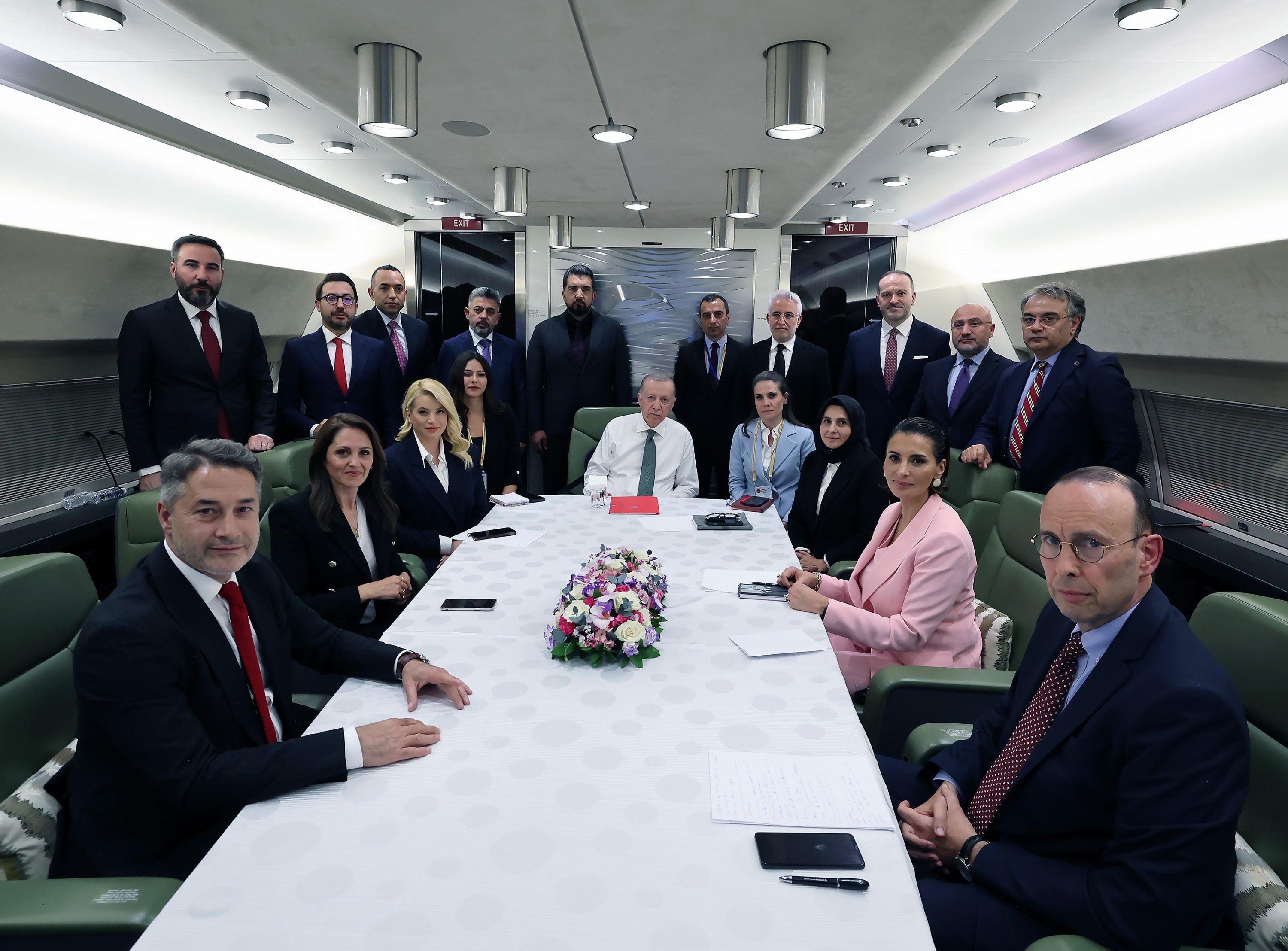
South Caucasus
Reiterating Türkiye’s commitment to regional peace and stability, Erdoğan also urged permanent peace between South Caucasus rivals Azerbaijan and Armenia, who have fought two wars over the disputed Karabakh region in the past three decades.
“Peace will be valuable for Azerbaijan, Armenia and Türkiye,” Erdoğan told reporters.
Pointing out Ankara’s ongoing efforts to normalize historically strained relations with Yerevan, he said both processes would benefit all three countries.
On the Zangezur Corridor, Erdoğan said it was not just a land connection but a “new integration line extending from Türkiye to the Turkic world.”
The corridor is a transportation concept that is being gradually implemented to secure Azerbaijan’s access to the Nakhchivan exclave by skipping Armenia.
“The corridor’s opening at the earliest possible date will strengthen the transport and energy infrastructure of the region,” Erdoğan said and urged Iran to support the project.
The corridor is a contentious issue between the neighbors. Regional broker Russia supports Azerbaijan’s demand to get unimpeded access to the Nakhchivan enclave by opening the Zangezur Corridor through Armenia, which would cut off Iran’s direct land access to Armenia.
The corridor is a geopolitical link for Türkiye to Azerbaijan and, beyond that, Central Asia.
Moscow and Baku want Russia to monitor and control the corridor, but Yerevan and Tehran oppose such a scheme and argue that even if a transport route were to be established, Armenia should have control over it.
“We expect our neighbor Iran to support these steps to serve peace and development in our region. We want them to benefit from this ‘win-win’ climate,” Erdoğan said.
Terror-free initiative
Turning to the terror-free Türkiye initiative, Erdoğan said the process continued smoothly so far and welcomed the messages as “constructive and reasonable.”
In a landmark development, the PKK terrorist group earlier this month announced its dissolution and the end of its four-decade terror campaign that cost tens of thousands of lives in Türkiye, as well as in Iraq and Syria.
Authorities continue to discuss the next steps in the process, including with their Syrian interlocutors, according to Erdoğan.
“We are cautious against those looking to poison the process,” he added.
Türkiye expects the PKK’s dissolution to include all affiliated groups, including extensions in Iraq and specifically its Syrian offshoot, the YPG.
The YPG is located largely around oil-rich regions of northern Syria and is backed by the United States under the guise of driving out Daesh remnants. Initially opposed to jailed PKK leader Abdullah Öcalan’s call to disband, the YPG in March signed a deal with Damascus to disband and join Syria’s new state institutions.
Implementation is due by the end of the year, but it was unclear how the YPG’s armed operation would be integrated.
Ankara has insisted that the YPG take immediate steps to fulfill the March deal, stressing the need for a “comprehensive government, a single legitimate armed force” for stability in Syria.
Damascus sharply rejected any attempt from the YPG for a decentralized system in post-Assad Syria as “against the deal” after the terrorist commanders last month called for federalism to establish a separate entity in the northern territories.
Erdoğan called on the YPG to “abandon their stalling tactics.”
“We are closely monitoring the implementation of promises they made,” he said, adding that he and Syria’s interim President Ahmed al-Sharaa have discussed the issue extensively.
Constitutional overhaul
Erdoğan also repeated his government’s promise to write a brand-new and “civilian” constitution for Türkiye.
The Turkish president has long pushed for a constitution to replace the current one, which was enforced in 1982 following a military coup that led to the detention of hundreds of thousands of people along with mass trials, torture and executions, which still represents a dark period in Turkish political history.
Erdoğan said he recently instructed 11 “colleagues” from his ruling Justice and Development Party (AK Party) to work on a new constitution.
“They will start working in the coming days,” he said. “We want a document that will reinforce democratic constitutionalism and guarantee rights and freedoms.”
He argued the current Constitution’s language was “problematic anyway” and said the AK Party team was working with legal experts.
“We want an inclusive approach and seek the widest possible consensus, but the CHP’s typical reluctance has once again come into play,” Erdoğan lamented, referring to his main opposition, the Republican People’s Party.
The CHP is inclined to reject a constitutional overhaul, with its leader, Özgür Özel, claiming such a change has raised “other kinds of negotiations” without elaborating.
At least 400 lawmakers must ratify a new constitution draft in Parliament. Anything over 360 votes would allow a referendum, allowing the people to decide.

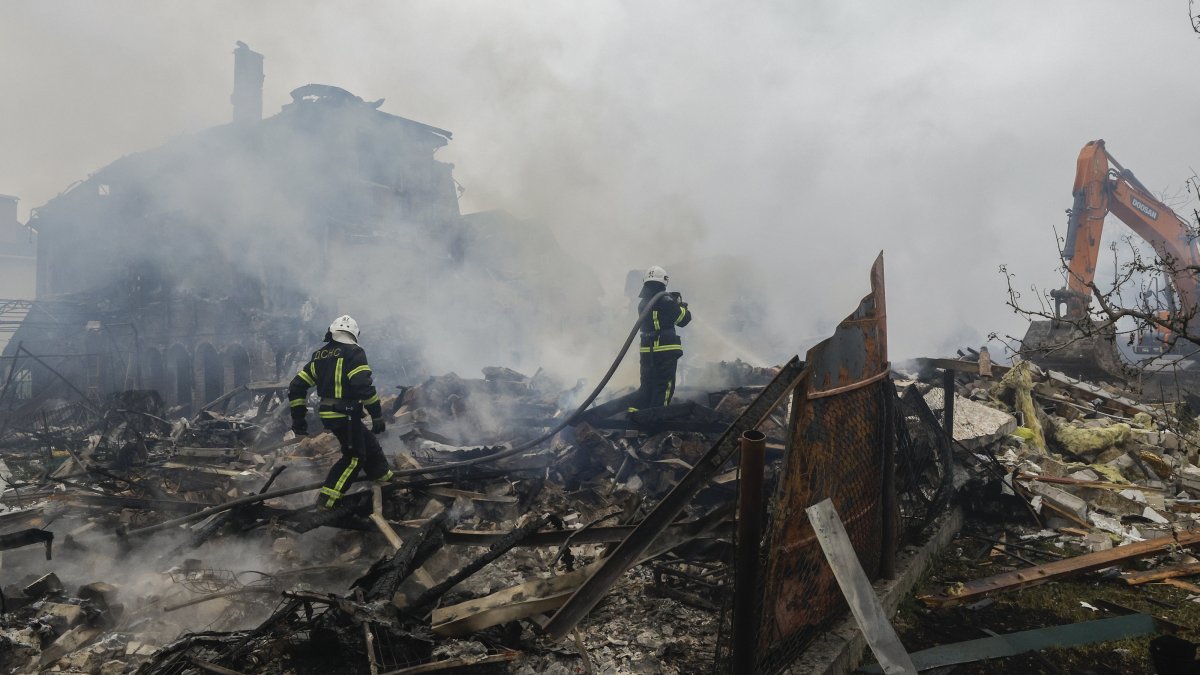
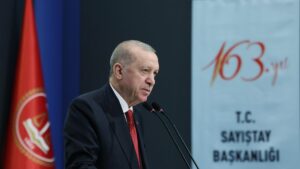
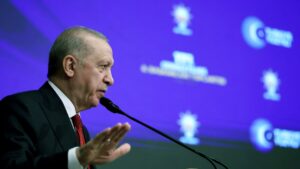
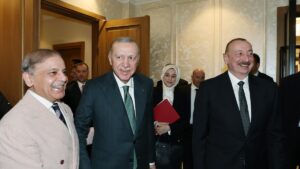

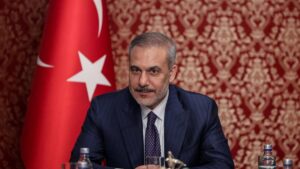
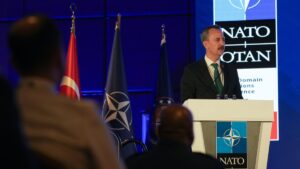
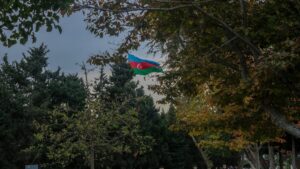
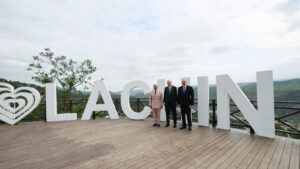
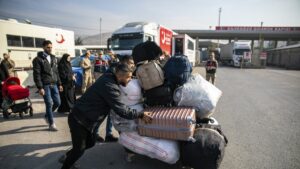
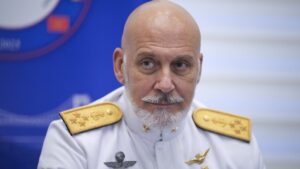
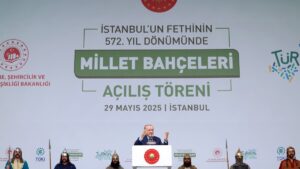
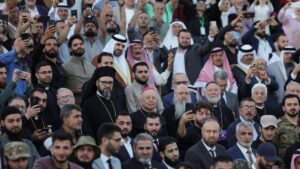
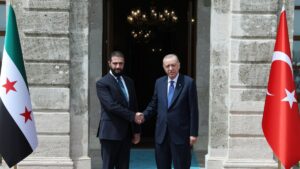

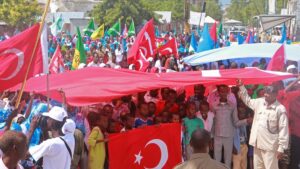
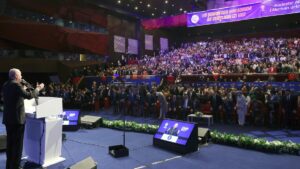
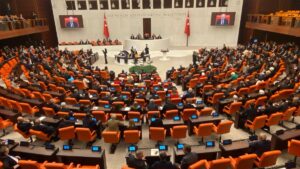
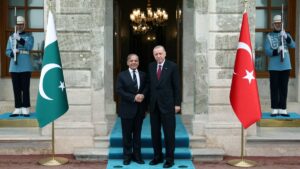
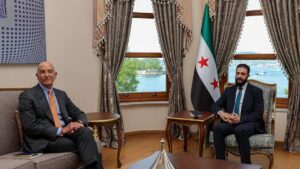
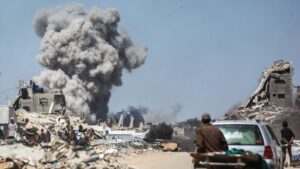
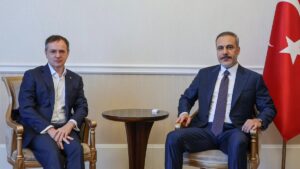
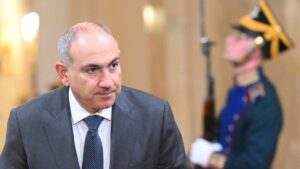
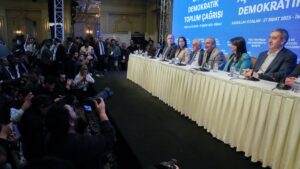
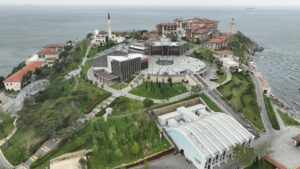

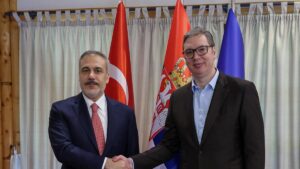

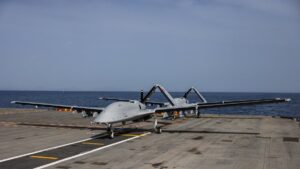
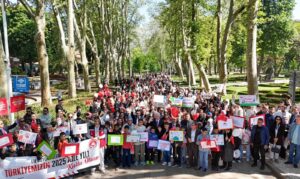
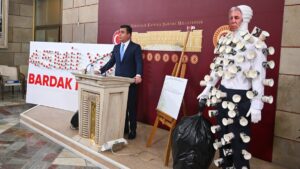
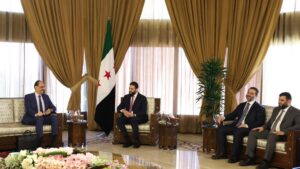
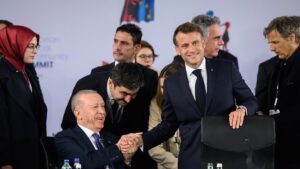
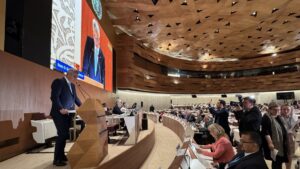
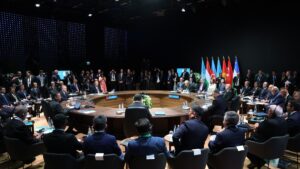
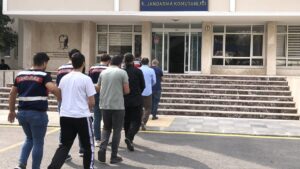
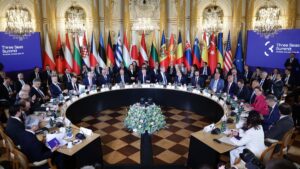
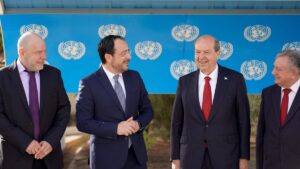
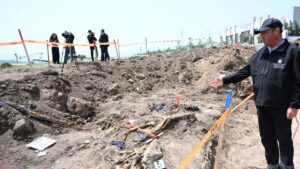
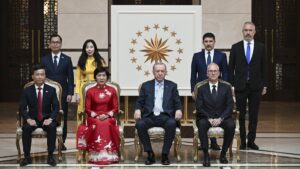
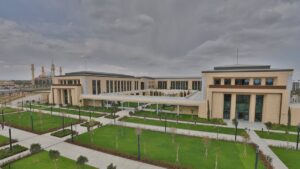


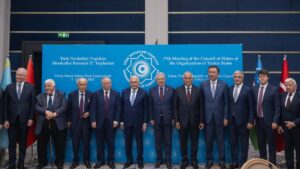
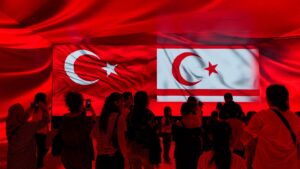
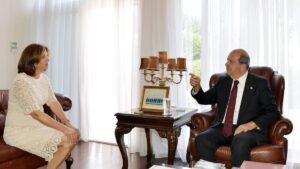
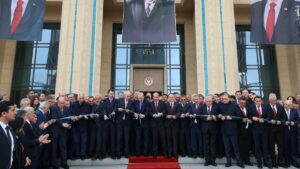
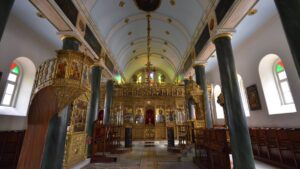
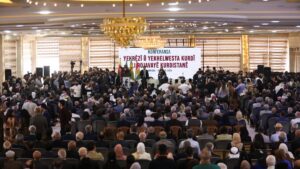
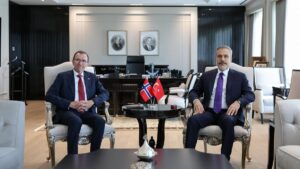
Be First to Comment